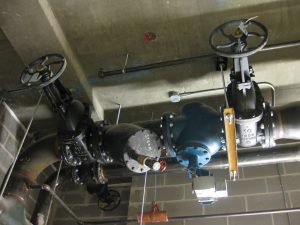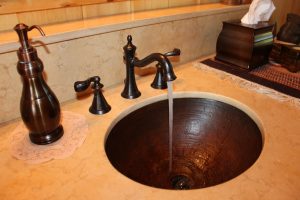3 Different Types Of Plumbing Systems
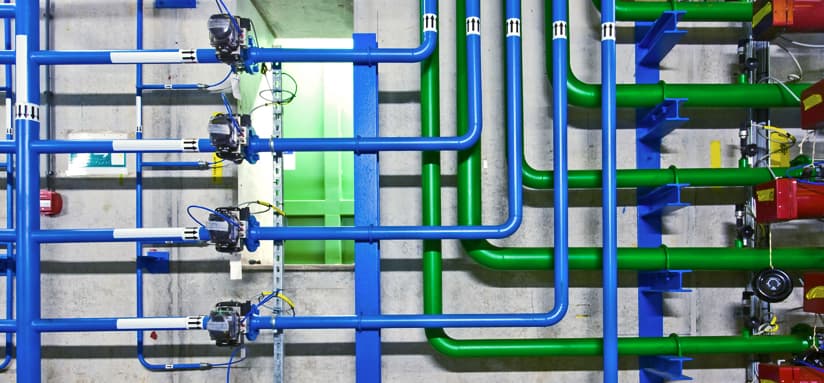
The plumbing system is one of the essential systems in commercial or residential buildings. It comprises three different types of plumbing systems: mainly sewage, water, and drainage plumbing. Each type of plumbing system is designed, installed, maintained and repaired by professional plumbers to ensure efficiency.
There are three different types of plumbing systems that are vital in mechanical planning for the building. It mainly involves creating the water system for an excellent drainage and sanitation system. It includes sewer pipes, pipe sloping, water pressure design, and overhead and underground piping. It also involves incorporating safe access to the water system components like installing specialty roof hatches if the central water system control is on the rooftop of the building.
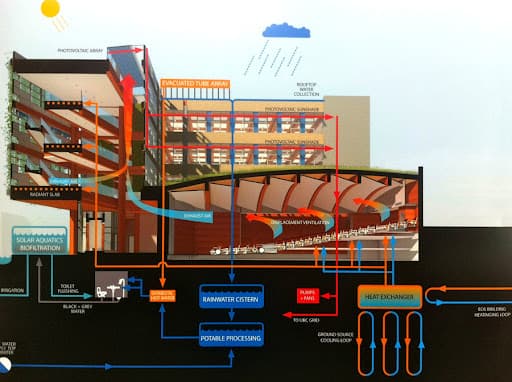
During this planning stage, a professional plumber and architects will share and change specific ideas to suit the needs of the building. Most professional plumbers also involve electricians as some water system components connect to the power system, such as water heaters and pumps.
It is crucial to have a professional plumber on the job site to be present in the first phase of the construction since there are a lot of piping installations such as drainage pipes, supply lines, and sewer lines to ensure proper installation of those pipes. Because nowadays, most of the pipings are mostly concealed under the building structure to prevent leakages due to tampering.
Regular or periodic plumbing maintenance can prevent expensive plumbing replacements and repairs in the future and give you the peace of mind that the home has a safe and healthy water system for your building and all occupants.
The following are the plumbing systems that the professional plumber will do:
Potable water or drinking water plumbing system
Potable plumbing systems in commercial or domestic premises should not permit degrading the mains’ water supply in any way. This drinking supply line needs adequate inspections and maintenance from a professional plumber to ensure that this line is free from cross-piping connections with wastewater or unsafe sources of plumbing systems.

This plumbing system must be able to cope with backpressure hazards or back siphonage, and the line should not be in contact with some other plumbing system that might transmit contamination. The plumbing material on this line should meet the performance and quality specifications set by the authorities or an accepted certification organization.
This drinking water plumbing fixtures and piping system require adequate maintenance and repairs from professional plumbers to minimize wastage and leakage. A sound installation of these fixtures also prevents leakages and protects the pipeline from accidental damage and corrosion.
Sewage plumbing system
A sewage system is a network of pumps, mains, and pipes used to collect wastewater and has a compartment inside for separation of sewage and sludge. Sewage systems have two main types: industrial and domestic. In some cases, they combine both methods into one.
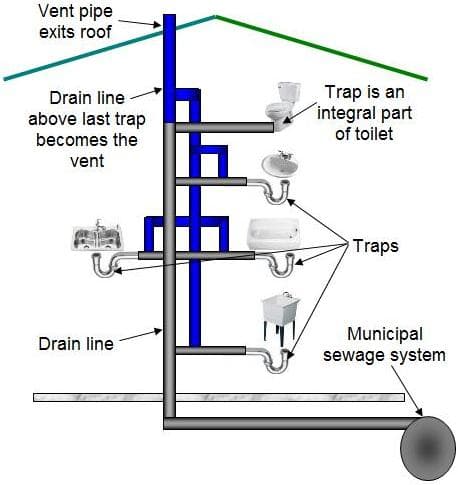
Sewage systems are beneficial in every building structure for the disposal of wastewater. This system requires proper maintenance from professional plumbers as they can bring problems to the environment. This sewage system contains many substances that can be harmful to human beings and other living creatures.
It is vital to understand that this system needs proper management and periodic inspection and maintenance from professional plumbers to prevent those sewage issues.
Drainage plumbing system
Drainage is a vital part of every building design. The main objective of the drainage system is to systematically remove those excess waters from the surface to maintain the healthy condition of the building. It includes all the piping that moves rainwater and other excess liquids to the point of disposal. Its design is to depose water as quickly as possible to avoid entering those excess water in residential or commercial buildings.
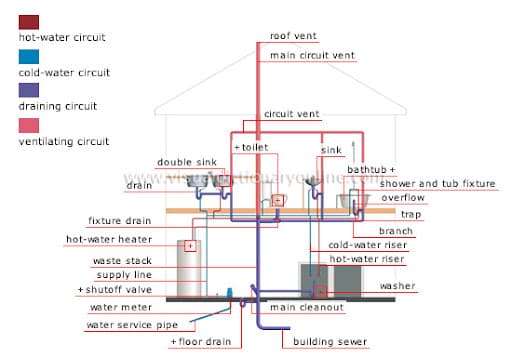
A proper drainage system works to avoid excess water from damming in your surroundings or underground surfaces that can damage your property. Without an appropriate drainage system, rainwater will quickly build up.
This system helps whisk water from driveways, roofs, walkways, and underground spaces to avoid flooding. It is imperative in residential areas to prevent structural damage, mildew, mold, and rotting in residential structures due to flooding.
It doesn’t matter how efficient your drainage system is. The drainage system will experience clogs, hiccups, or tears over time like any other plumbing system. Drainage systems require periodic property inspection and maintenance from a professional plumber to ensure it is working efficiently. Failing to maintain the drainage system properly can cause severe problems and property damage during heavy rains.
It is essential to note that the plumbing system is necessary for our daily life. The professional plumber plays a vital role in keeping the plumbing system efficient in the building. Whether residential or commercial, all plumbing systems require maintenance and repairs of their components as time goes by to prevent serious clogs, and fixture damage and keep all the plumbing systems functional every day.

